Percy Bysshe Shelley: Nine Poems
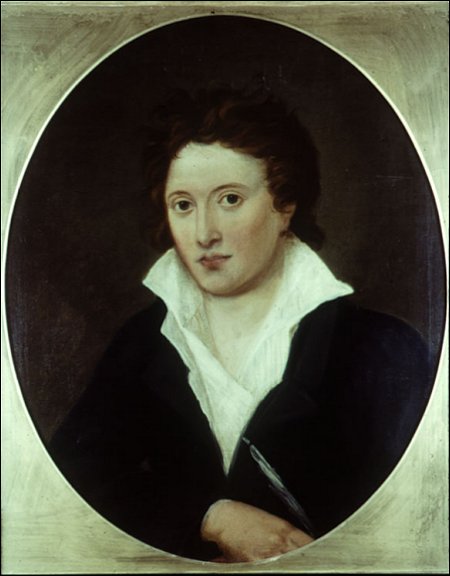
Percy Bysshe Shelley
(August 4, 1792 Horsham, England – July 8, 1822 Livorno, Italy)
Nine Poems
Death
1
They die–the dead return not–Misery
Sits near an open grave and calls them over,
A Youth with hoary hair and haggard eye–
They are the names of kindred, friend and lover,
Which he so feebly calls–they all are gone–
Fond wretch, all dead! those vacant names alone,
This most familiar scene, my pain–
These tombs–alone remain.
2
Misery, my sweetest friend–oh, weep no more!
Thou wilt not be consoled–I wonder not!
For I have seen thee from thy dwelling’s door
Watch the calm sunset with them, and this spot
Was even as bright and calm, but transitory,
And now thy hopes are gone, thy hair is hoary;
This most familiar scene, my pain–
These tombs–alone remain.

Satan broken loose
(fragment)
A golden-winged Angel stood
Before the Eternal Judgement-seat:
His looks were wild, and Devils’ blood
Stained his dainty hands and feet.
The Father and the Son
Knew that strife was now begun.
They knew that Satan had broken his chain,
And with millions of daemons in his train,
Was ranging over the world again.
Before the Angel had told his tale,
A sweet and a creeping sound
Like the rushing of wings was heard around;
And suddenly the lamps grew pale–
The lamps, before the Archangels seven,
That burn continually in Heaven.

Lines to a critic
1
Honey from silkworms who can gather,
Or silk from the yellow bee?
The grass may grow in winter weather
As soon as hate in me.
2
Hate men who cant, and men who pray,
And men who rail like thee;
An equal passion to repay
They are not coy like me.
3
Or seek some slave of power and gold
To be thy dear heart’s mate;
Thy love will move that bigot cold
Sooner than me, thy hate.
4
A passion like the one I prove
Cannot divided be;
I hate thy want of truth and love–
How should I then hate thee?

To…?
1
I fear thy kisses, gentle maiden,
Thou needest not fear mine;
My spirit is too deeply laden
Ever to burthen thine.
2
I fear thy mien, thy tones, thy motion,
Thou needest not fear mine;
Innocent is the heart’s devotion
With which I worship thine.
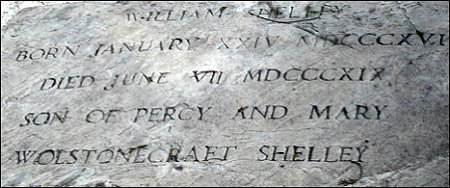
Song of Proserpine while gathering flowers
on the Plain of Enna
1
Sacred Goddess, Mother Earth,
Thou from whose immortal bosom
Gods, and men, and beasts have birth,
Leaf and blade, and bud and blossom,
Breathe thine influence most divine
On thine own child, Proserpine.
2
If with mists of evening dew
Thou dost nourish these young flowers
Till they grow, in scent and hue,
Fairest children of the Hours,
Breathe thine influence most divine
On thine own child, Proserpine.
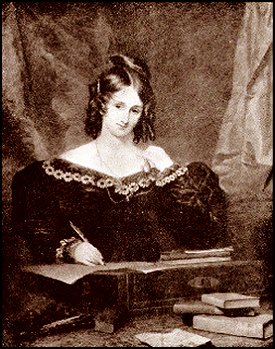
Autumn: A Dirge
1
The warm sun is failing, the bleak wind is wailing,
The bare boughs are sighing, the pale flowers are dying,
And the Year
On the earth her death-bed, in a shroud of leaves dead,
Is lying.
Come, Months, come away,
From November to May,
In your saddest array;
Follow the bier
Of the dead cold Year,
And like dim shadows watch by her sepulchre.
2
The chill rain is falling, the nipped worm is crawling,
The rivers are swelling, the thunder is knelling
For the Year;
The blithe swallows are flown, and the lizards each gone
To his dwelling;
Come, Months, come away;
Put on white, black, and gray;
Let your light sisters play–
Ye, follow the bier
Of the dead cold Year,
And make her grave green with tear on tear.

Death
1
Death is here and death is there,
Death is busy everywhere,
All around, within, beneath,
Above is death–and we are death.
2
Death has set his mark and seal
On all we are and all we feel,
On all we know and all we fear,
3
First our pleasures die–and then
Our hopes, and then our fears–and when
These are dead, the debt is due,
Dust claims dust–and we die too.
4
All things that we love and cherish,
Like ourselves must fade and perish;
Such is our rude mortal lot–
Love itself would, did they not.
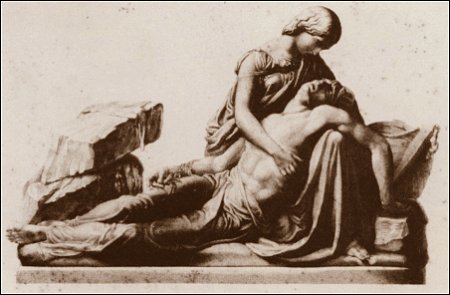
To the moon
1
Art thou pale for weariness
Of climbing heaven and gazing on the earth,
Wandering companionless
Among the stars that have a different birth,–
And ever changing, like a joyless eye
That finds no object worth its constancy?
2
Thou chosen sister of the Spirit,
That grazes on thee till in thee it pities…
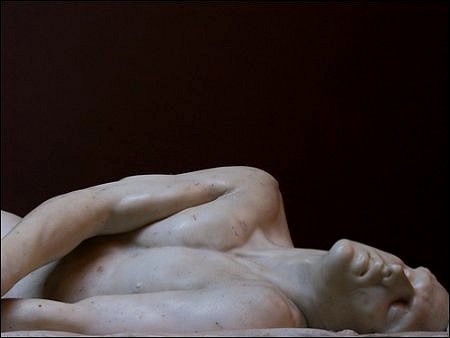
Sonnet
Ye hasten to the grave! What seek ye there,
Ye restless thoughts and busy purposes
Of the idle brain, which the world’s livery wear?
O thou quick heart, which pantest to possess
All that pale Expectation feigneth fair!
Thou vainly curious mind which wouldest guess
Whence thou didst come, and whither thou must go,
And all that never yet was known would know–
Oh, whither hasten ye, that thus ye press,
With such swift feet life’s green and pleasant path,
Seeking, alike from happiness and woe,
A refuge in the cavern of gray death?
O heart, and mind, and thoughts! what thing do you
Hope to inherit in the grave below?
Percy Bysshe Shelley: Nine Poems
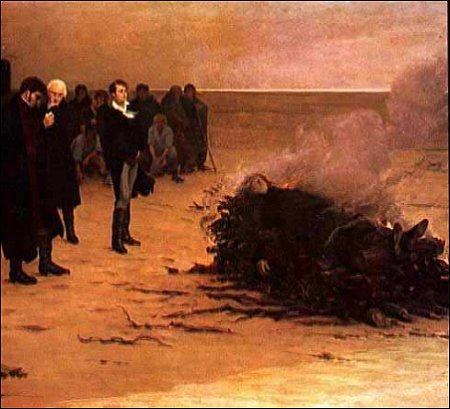
• fleursdumal.nl magazine for art & literature
More in: Archive S-T, Archive S-T, Percy Byssche Shelley, Shelley, Percy Byssche

